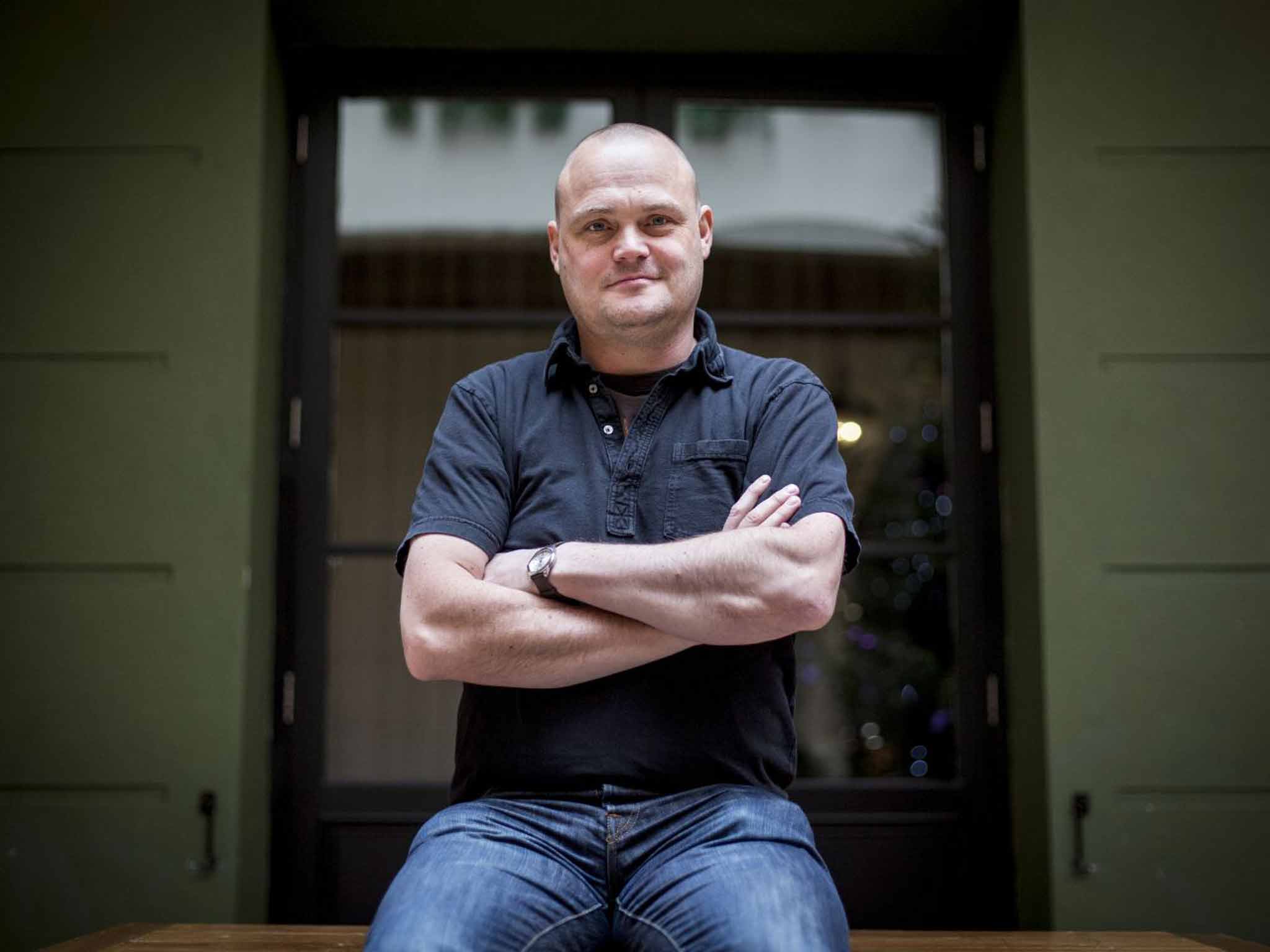Comedians and free speech: Do they really practise what they preach?
As some of Britain's best comedians prepare for a benefit in aid of free speech, William Cook asks them about their own experiences of standing up to censorship

In 1968, a group of Russian dissidents wrote a letter to The Times, asking Britons to support two writers who had been imprisoned for "anti-Soviet agitation and propaganda". Their letter inspired 16 eminent intellectuals to write back, including Bertrand Russell and A J Ayer, and the result was Index on Censorship – a magazine, a pressure group, and a tireless champion of free speech. Now, the USSR is no more, but Index on Censorship is still campaigning.
Naturally, this costs; so, tomorrow, a bunch of comics are staging a benefit in – where else? – Islington. "Stand Up For Satire" features some of the best in the country and several have had direct experience of censorship and repression. Nearly 50 years after Index was founded, British satirists are still a lot less restricted than their Russian counterparts. But are they really free to say exactly what they think?
Shappi Khorsandi was born in Iran in 1973. Her father, Hadi, was a journalist who often criticised the Shah's regime. Initially, Hadi welcomed Ayatollah Khomeini's revolution, but after he wrote a satirical poem about the new regime, his office was besieged by a baying mob shouting, "Death to Khorsandi!"
He was declared an enemy of the revolution, sought asylum in Britain and, from his new home in London, published his own satirical magazine. ("People were flogged for trying to smuggle it into Iran," says Shappi.) In 1984, a plot on Hadi's life was foiled by an Iranian informer who was a fan of his writing. Her family went into hiding, and had to check under their car for bombs every day.
Remarkably, Shappi then decided to become a comic. "My father was quite disappointed in me at first because I was such a shy performer,' she says. "It's taken me about 15 years to feel comfortable." But, she admits, "I'm not as hard-hitting as my dad… I would never put myself out there the way he did."
Shappi doesn't seek confrontation in her comedy, but in our brave new virtual world, people have never been so quick to take offence. "Nothing kills my funny bone more than strangers sending me reams and reams of hate on social networking." Thankfully, Shappi and her father can still see the funny side. After a spate of trolling, she complained to her father. "How many hate messages did you get?" he asked. "About 50," she replied. "Oh dear," he said, "When you tell me 5,000, I'll think you're becoming a success…"
Andrew Maxwell was born in Dublin in 1974, and grew up in nearby Kilbarrack. However, unlike most folk there, Andrew was raised a Protestant, and this mixed heritage has given him a unique perspective. In the early 1990s, when he started doing stand-up, a series of sex scandals shattered the Catholic Church, just as Ireland was entering an economic boom. For Irish satirists, this was a perfect storm. The moral crisis in the church opened up a big space for new ideas, and a flood of easy money created a carnival atmosphere in which comedians could prosper.
At the same time, Andrew experienced a comparable sea-change in Northern Ireland. The peace process was just beginning, and a new comedy club, The Empire Laughs Back, opened in Belfast. "The Empire was known to be a Catholic bar and Loyalist paramilitaries were literally a stone's throw from the front door," says Andrew. "We had death threats." When an IRA bomb in a chip shop on the Shankhill Road sparked a series of equally bloody reprisals, the Empire could have been a target, yet that week the place was packed. "People didn't want to live like this – they just wanted a laugh. And that's what laughter does – it humanises you."
Like the Catholic Church, the paramilitaries had been unmentionable when Andrew was growing up. But as the peace process progressed, he found he was able to talk about the Troubles, but with one proviso: "If you go onstage and you only rip the crap out of one side, that's very, very bad form. You must rotate the jokes." This worked for mixed audiences, but when he played partisan crowds – former prisoners' associations on the Falls Road and the Shankhill – the rules were completely different. "Both sides sat me down and told me: 'You can say anything you like about us… but not the other side. We will not find it funny'." And yet these hard men loved hearing jokes about themselves. "I'm talking about them kidnapping people, burning their own houses down by accident – but not a single thing against the other side."
The same understanding has not flourished in Scotland, apparently. Last summer, in Edinburgh, when Andrew tried to talk about the conspiracy of silence around the "No" vote in the Scottish referendum, "Nobody would discuss it – they were frightened, it's that insidious thing of self-censorship," he says. "That's the only reason I did the show, and I got attacked onstage for it. A guy threw a pint at my head."

Al Murray started doing "alternative" stand-up in the mid-Nineties, when there wasn't overt censorship, but one's options as a satirist were constricted. For a right-wing comic to flourish on this circuit would have been inconceivable. The movement had started as a reaction to racist, sexist humour, but it quickly acquired a blinkered orthodoxy of its own. Margaret Thatcher became the movement's mother-in-law, Tories and yuppies were its darkies and poofters. However the punters at these comedy clubs were rarely as right-on as the performers, and by the John Major years, new laddism was the norm, onstage and in the stalls. Al's alter ego, the Pub Landlord, connected with this audience, playing with the prejudices they'd only recently left behind.
"People should do whatever comedy suits them," says Al. "Anything goes is my view." Even Islam? "The problem you run into with super-touchy subjects like that is making them funny," he says. "It is hard to do. You get this challenge: 'You're never going to joke about Muslims,' from people who would obviously really like you to, but for all the wrong reasons."
Al's greatest coup de théâtre – so far – was standing against Nigel Farage in South Thanet at the general election on a manifesto that was a surreal send-up of Ukip policy. "We're really fortunate we have free speech, because it's a brilliant two-way street. You can say what you think, and that includes arseholes. Then we can all find out who they are."
Inevitably, not everyone in South Thanet got the joke, but Al has no regrets. "We live in a period of robust argument," he says. He remembers some folk telling him: "People didn't die in the Second World War so you could take the piss." "Well, actually," says Al, "they did."
'Stand Up For Satire', Union Chapel, London N1, tomorrow at 7.30pm, indexoncensorship.org
Join our commenting forum
Join thought-provoking conversations, follow other Independent readers and see their replies
Comments
Bookmark popover
Removed from bookmarks